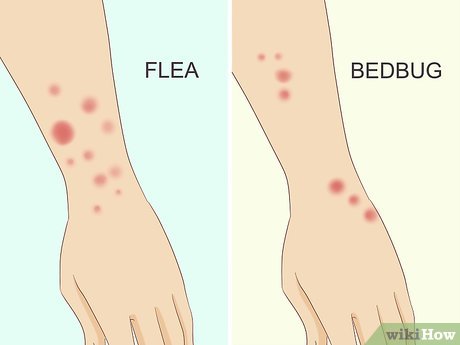
Unwanted Roommates: How to Identify and Treat Bed Bug Bites on Your Skin
Introduction:
Uninvited guests often make their way into our homes, but none are as pesky and troublesome as bed bugs. These tiny, blood-sucking insects can quickly turn your sanctuary into a nightmare. Not only can their infestation disrupt your sleep, but their bites can cause itching, rashes, and discomfort. In this article, we will explore how to identify bed bug bites on your skin and provide effective treatment options.
Identifying Bed Bug Bites:
Identifying bed bug bites can be tricky, as they often resemble other insect bites. However, there are a few tell-tale signs that can help you determine if your unwelcome guests are bed bugs.
Appearance: Bed bug bites typically appear as small, red welts on the skin. They are often grouped together or appear in a line, as bed bugs tend to bite multiple times in a row. The bites may be accompanied by itchiness or a burning sensation.
Location: Unlike other insects, bed bugs are attracted to areas of exposed skin. Common areas for bites include the face, neck, arms, and hands. They may also appear on other parts of the body, depending on your sleeping position.
Timing: Bed bug bites usually take a few days to manifest, as your body’s reaction to the bite develops over time. If you notice multiple bites appearing simultaneously after waking up, it may be a strong indicator of a bed bug infestation.
Treatment Options:
Once you have identified bed bug bites, it is essential to treat them promptly to alleviate discomfort and prevent infection. Here are some effective treatment options:
1. Wash the Affected Area: Clean the bites with mild soap and water to eliminate any bacteria that may lead to infection. Pat the area dry gently with a clean towel.
2. Use Over-the-Counter Creams or Lotions: Applying antihistamine creams or calamine lotion can help relieve itching and reduce inflammation caused by bed bug bites. These products are easily accessible at your local drugstore without a prescription.
3. Take an Oral Antihistamine: If the itching persists, antihistamine tablets can provide relief by reducing allergic reactions and preventing further itching. However, consult your healthcare provider before taking any medication, especially if you have any existing medical conditions.
4. Apply Cold Compresses: Placing a cold compress or ice pack on the affected area can help reduce swelling and numb the itchiness temporarily. Wrap the ice pack in a thin cloth to prevent direct contact with your skin.
5. Avoid Scratching: Although it may be tempting to scratch the itchy bites, avoid doing so. Scratching can lead to skin damage and increase the risk of infection. Instead, try to distract yourself with activities or use gentle pressure to alleviate the urge to scratch.
Preventing Future Infestations:
While treating bed bug bites is necessary, preventing future infestations is vital to keep these unwanted roommates at bay. Here are a few prevention measures to consider:
1. Regularly Inspect Your Bedroom: Conduct routine checks for signs of bed bugs, such as dark spots on the mattress, tiny eggs, or shed skins. If you suspect an infestation, seek professional help immediately.
2. Use Mattress and Pillow Covers: Encase your mattress and pillows with bed bug-proof covers. These covers create a barrier that prevents bed bugs from infesting the mattress or escaping if they are already present.
3. Vacuum and Clean Regularly: Vacuum your bedroom and other potential hiding places for bed bugs, such as cracks in the furniture or baseboards. Clean your bedding, curtains, and clothes regularly using hot water to eliminate any potential infestations.
4. Minimize Clutter: Decluttering your living space reduces hiding spots for bed bugs, making it easier to detect and eliminate them. Keep your bedroom tidy and avoid storing unnecessary items under the bed or near sleeping areas.
Conclusion:
Bed bug bites can be extremely uncomfortable and disrupt your everyday life. By familiarizing yourself with the symptoms of these bites and promptly treating them, you can alleviate discomfort and prevent further complications. Remember, prevention is key to keeping these unwanted roommates from infiltrating your home. Stay vigilant, keep your living space clean, and consult professionals if you suspect a bed bug infestation. With these precautions and proper treatment, you can say goodbye to bed bugs and regain your peaceful sleep!

















